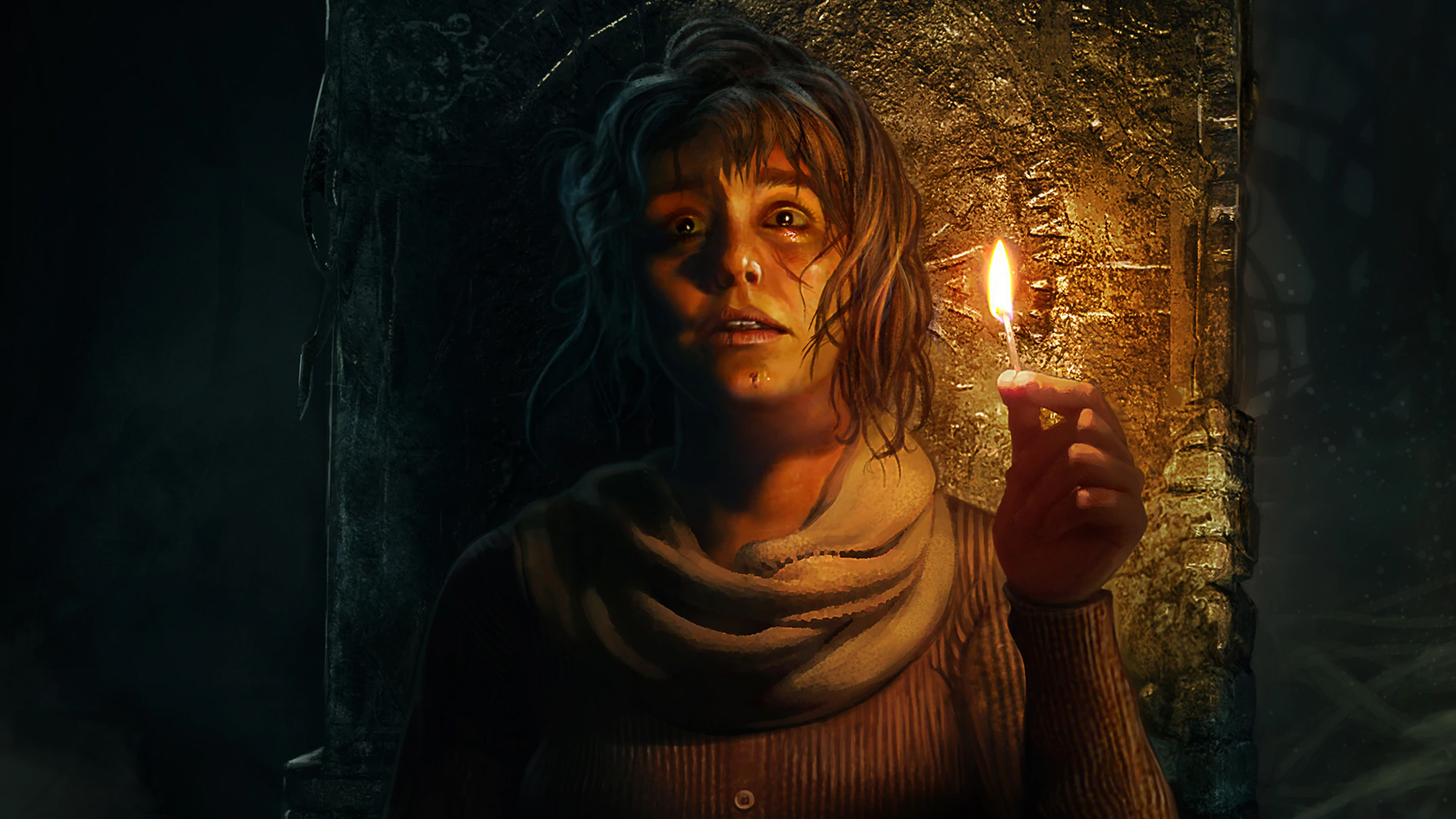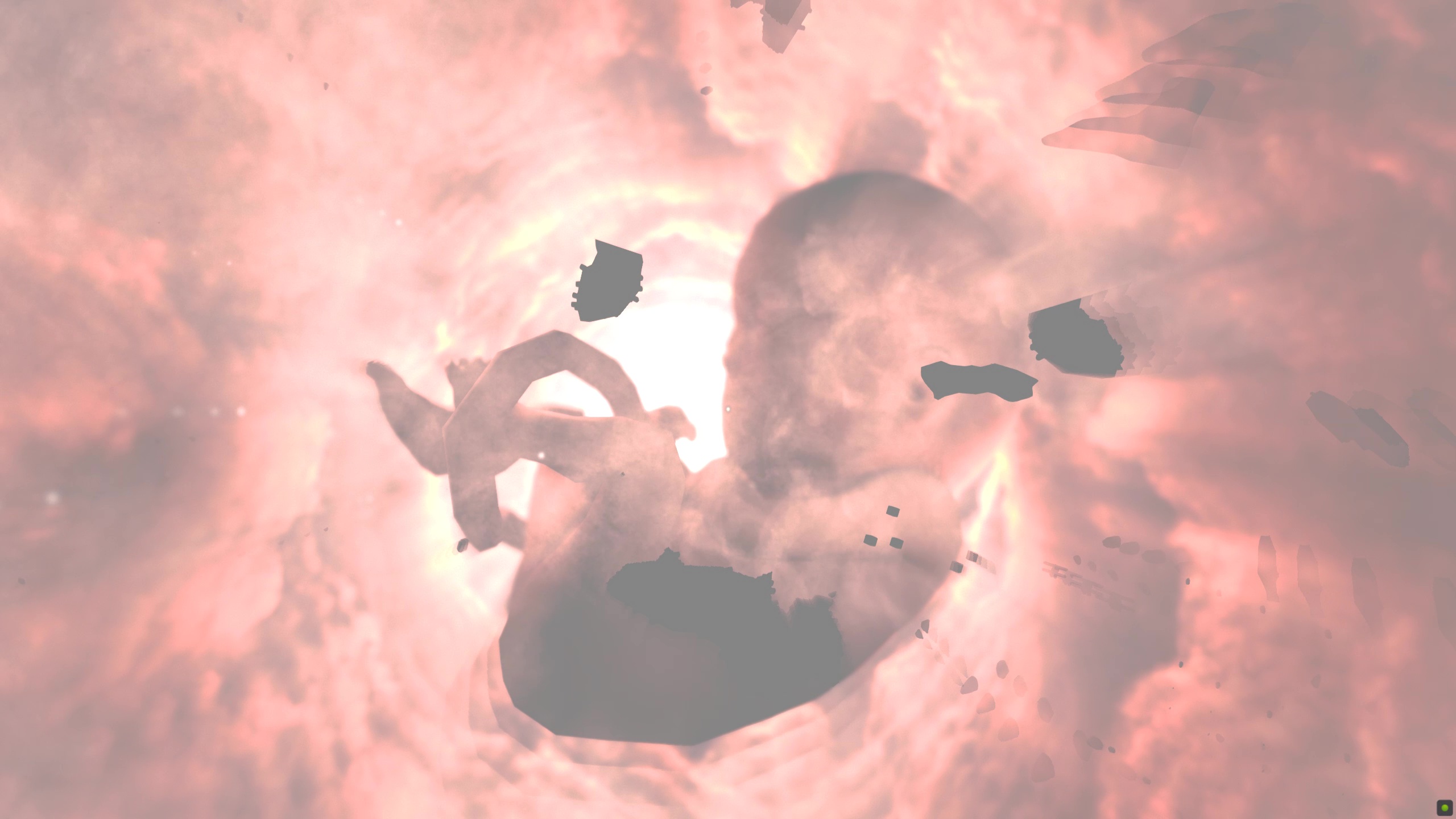Why I love Amnesia: Rebirth's baby button
We've come a long way from pressing F to pay respects.


This article first appeared in PC Gamer magazine issue 352 in January 2021, as part of our 'Why I Love' series. Every month we talk about our favourite characters, mechanics, moments, and concepts in games—and explain why we adore them so much.
Amnesia: Rebirth casts you as Tasi Trianon, a young explorer with a rough case of amnesia. Big surprise. Besides bobbing and weaving around cosmic horrors, getting your memories back is the top goal here. Early on, you'll recall the tragic fate of some loved ones and chip away at the extra tragic local colonial history. But soon enough Tasi will gather enough memory scraps to piece together a particularly big one: she's four months pregnant.
Tasi's pregnancy isn't marginalised, stowed away for certain cutscenes and story beats. As the player you will need to literally babysit, pressing a button to make Tasi hold her belly to feel and listen for her unborn child. I'm not very far into Rebirth, but the simple existence of a ‘Press X to check fetus' system already gives the horror new dimensions.
Sure, it sounds goofy without context, and immediately brings to mind Call of Duty: Advanced Warfare's infamous ‘Press F to pay respects' scene. But that moment is an empty gesture – you don't spend the next ten hours pressing F to salute soldiers to maintain your Respect stat. It's a button prompt that effectively turns the page. Amnesia makes its baby button prompt a lever you can pull at any time, and for good, spooky reasons.
I would tell you exactly how the baby button works, but the key here is that the explicit function of the baby button isn't really explained. I only put together how it works through play. Rebirth is leading with action and theme: you're pregnant, protect the baby. It's mum roleplay.
All I know is that checking in on your baby restores a bit of sanity whenever the screen flashes blue to signify a kick, an interesting alternative to finding or making light or solving a puzzle. It might seem odd to give the player a free, super accessible sanity pump, but if you're put into a position where finding light or fleeing aren't an option, standing still to clutch your unborn child just so you don't go insane means you're close to done for already. It's a desperation button, and one that's elegantly integrated into the story and character. Now you have a legitimate systems-driven directive to roleplay a mother in a horrifying situation.

Mother space
It's nicely positioned next to Amnesia's fear system, too, in which the character's grip on reality is expressed through camera control and visual fidelity. Those are both hindered and obscured by ambient threats like standing in darkness, or looking at horrific scenes and monsters. The way you manoeuvre a space, where you're looking, and how dark it is affect your fear, while more traditional physical threats affect your person. And in Rebirth your person is a person within a person, a health bar you feel and care about.
I know I care because I catch myself checking on the little one all the time, even if I'm not succumbing to fear. Controlling a pregnant character makes me feel more fragile and makes me pay more attention to her presence in a space, even if Tali moves and controls like most other first-person horror protagonists. After a sprint into safety or a tumble down some rocks in the pitch darkness of a deep subterranean cave, I instinctively hold X to see how the baby is doing, not because my sanity is slipping. But even as I'm walking around a safe outdoor area I'll listen in purely out of curiosity.
The biggest gaming news, reviews and hardware deals
Keep up to date with the most important stories and the best deals, as picked by the PC Gamer team.
The unreliable perspective has me a bit scared of the baby too, though. Given Tali's amnesia, I can't fully trust what she's seeing and hearing. It could very well burst out of my chest in the third act Alien-style, a mangled monster-demon from another dimension. Maybe it's not actually there at all. Is it just a coping mechanism imagined by Tali or, far worse, the directed hallucination of some cosmic force steering me towards its incomprehensible goal?
While it might sound needlessly complicated when you're already worried about running out of lantern oil and matches or the monster scraping at the door, checking in on the baby doesn't feel like a chore. It's the prime directive. It's what I care most about and somehow my greatest fear. That's just good game design: thematic camouflage for the numbers and stats and resources directing the game systems that I trust without question. Now all I have to do is find the courage to see it all through.
James is stuck in an endless loop, playing the Dark Souls games on repeat until Elden Ring and Silksong set him free. He's a truffle pig for indie horror and weird FPS games too, seeking out games that actively hurt to play. Otherwise he's wandering Austin, identifying mushrooms and doodling grackles.


